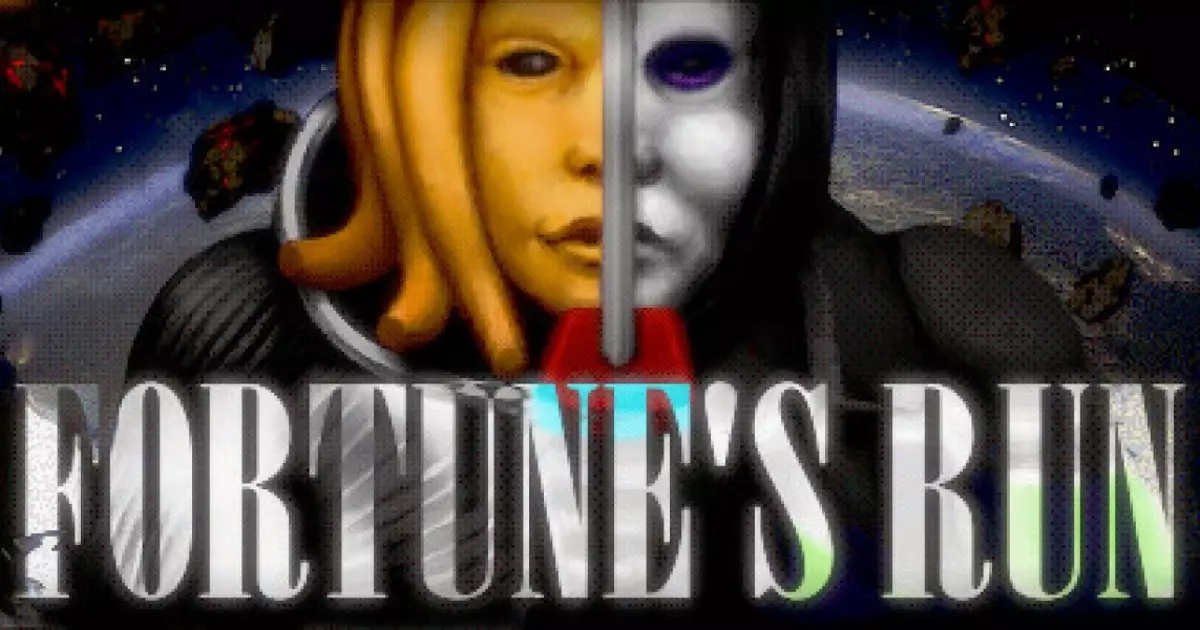The gaming community often thrives on the stories of the people behind the creations, but when those narratives take a darker turn, it raises formidable questions about the intersection of personal life and professional endeavor. Recently, the development of the immersive sim-shooter, Fortune’s Run, came to an unexpected halt when its lead developer, known as Dizzie, announced a hiatus from the project due to a forthcoming prison sentence of three years for a violent crime. This dramatic twist not only puts the future of Fortune’s Run in jeopardy but also invites reflection on the broader implications for independent game development, mental health, and the impact of life circumstances on creativity.
The situation surrounding Dizzie is fraught with complexity. After an agonizing five-year legal struggle, the sentence has now overtaken any semblance of a promising career in game development. In a poignant Steam post, Dizzie expressed a profound sense of regret for previous violent actions, revealing a life filled with personal turmoil before becoming a game developer. The acknowledgment of being “a very violent person” adds troubling layers to the storyline, inviting questions about accountability, rehabilitation, and the long-lasting impacts of past behavior.
The nature of the crime has not been explicitly detailed, save for clarifications that it does not involve sexual violence, leaving a cloud of intrigue and speculation. The lack of a specific description regarding the violent crime raises an ethical discussion: to what extent should creators be held accountable for their actions outside their professional life? Should fans and consumers separate an artist’s personal failures from their artistic contributions, or is that line inevitably blurred?
In addition to Dizzie’s legal issues, Fortune’s Run has faced significant changes within its development team. Arachne, the other half of the development duo, has stepped back from game development entirely following a difficult medical procedure. Dizzie’s reassurances that her departure had no direct connection to his legal woes emphasizes an attempt to maintain the integrity of their professional relationship; however, the turbulence cannot be ignored. Dizzie admits to having stressed Arachne with both his legal troubles and a grueling work schedule, a dual pressure that ultimately contributed to the team’s disruption.
This scenario raises a critical point about mental health in creative industries. The insatiable demands of game development can easily lead to burnout and interpersonal conflict, particularly in small teams where teamwork is paramount. Arachne’s exit not only leaves a gap in the development but also inherently calls into question how personal lives affect collaborative efforts in creative endeavors. A developer’s emotional well-being cannot be isolated from the projects they work on; stress, exhaustion, and personal challenges deeply influence the creative process and productivity.
Looking ahead, the future of Fortune’s Run remains clouded with uncertainty. While Dizzie is optimistic about resuming work after his release due to strong initial sales, the reality is multifaceted. The unsustainable pressure of completing tasks single-handedly before incarceration has taken a toll. Though he has expressed passion for the project and a desire to continue making games, the landscape of independent development is fraught with instability, particularly when foundational team dynamics are disrupted.
Moreover, the gaming community’s reaction to this situation will be telling. Fans might grapple with disappointment, yet they may also sympathize with Dizzie’s struggles. However, it poses a crucial dilemma: to what extent should the gaming community continue to support a creator whose personal life spiraled into criminal behavior? The line between art and artist can be a complicated divide, as sentiments of empathy or disenchantment may prevail.
As the world of Fortune’s Run pauses, it serves as a poignant reminder of the fragility of the creative process. Personal demons can often overshadow professional aspirations, leading to unanticipated consequences. The journey of Dizzie and Arachne stands as a testament to the complex reality of game development, where passion meets the profound consequences of life’s choices. As Dizzie prepares for incarceration, the gaming community waits, hopeful for resolution but realistic about the uncertainties that lie ahead.

